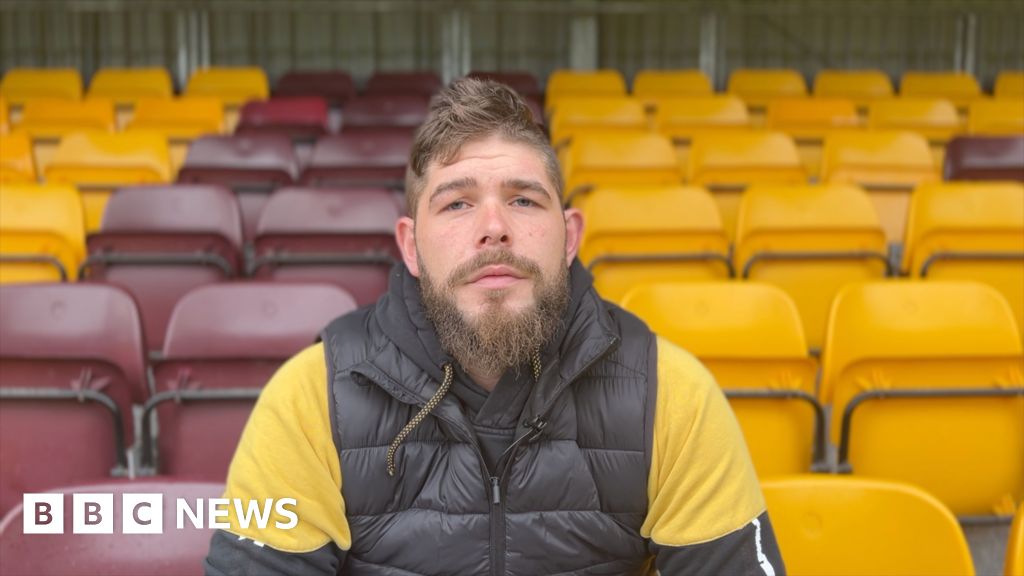
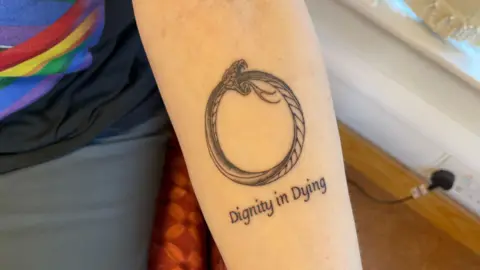 Mark Ansell/BBC
Mark Ansell/BBCMPs will be asked to vote on Friday on the assisted dying bill, which would give terminally ill people in England and Wales the right to choose to end their life.
Patients and their families from across Yorkshire have shared their feelings about the deeply personal issue.
‘A dignified end’
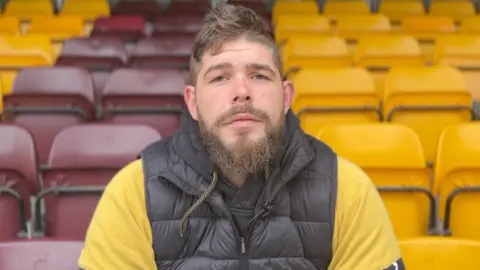 James Vincent/BBC
James Vincent/BBCJoshua Cook’s mum took her own life at home alone earlier this year.
She had been suffering from Huntington’s disease, an incurable neurogenerative condition, with patients having a 50% chance of passing it on to their children.
Mr Cook has inherited the disease.
Encouraging or assisting suicide is still a crime with a maximum penalty of 14 years in prison.
“My mum had to lie to me about taking her own life, in order to safeguard me from prosecution,” he said.
“So I couldn’t be there at her side. Which isn’t the end that she wanted, she wanted to go in peace, with dignity at the end, not hiding in a house and having to lie to the people she loves.”
The 33-year-old fears a similar death waits for him.
“I will be made to go through, in my eyes, the most unimaginable torture and suffering.”
Mr Cook, from Huddersfield, said his mum had spent years campaigning for assisted dying to be made legal.
He described the bill as “phenomenal” and said he believed the safeguards were restrictive enough to prevent anyone from being pressured into taking their own life.
“The law is for the very select few who are terminal, mentally competent and want to take control and have a dignified end.”
‘I don’t want to suffer’
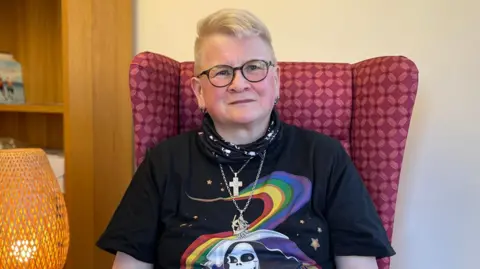 Mark Ansell/BBC
Mark Ansell/BBCMary Buchanan points to a tattoo on her forearm which reads “dignity in dying”.
The 63-year-old has the terminal disease pulmonary fibrosis and attends a weekly drop-in session at St Leonard’s Hospice in York, where patients have been discussing the assisted dying bill over cups of tea.
“I’m hoping it’s going to pass,” she said.
She believes people should have the right to be put out of “misery, pain and discomfort”.
“If you don’t know what it’s like to be in pain with a terminal illness, or have a relative who’s in pain, then you don’t know the full story,” she said.
Ms Buchanan said she had already spoken to her family about going to Dignitas, the assisted dying facility in Switzerland, when she decides the right time has come.
She has even made plans for her sister, who lives in Australia where assisted dying is legal, to accompany her.
But she would make use of the new law in England if it did pass.
“If it’s at the point where I’m on oxygen and struggling to breathe and my life is not like it was, to be suffocating – that’s no way to live.
“I have said right from the start, from the diagnosis, I want to go to Dignitas, because I don’t want to suffer and rely on drugs to manage the pain.”
‘Serious unintended consequences’
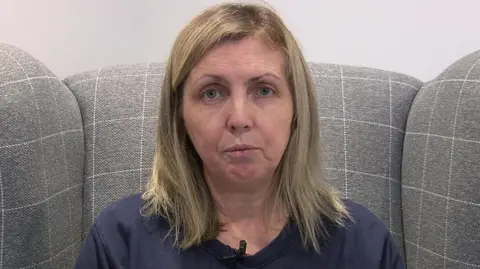
Dee Cowburn’s daughter Tilly has Rett syndrome, a rare genetic disorder that means she requires round-the-clock care.
The eight-year-old loves Taylor Swift and enjoys maths, English and reading at school.
But as a result of her condition she is non-verbal.
One of Ms Cowburn’s biggest worries over the assisted dying bill is about who will speak up for vulnerable young people like Tilly when their parents are no longer there to advocate for them.
“Her needs look so significant and her complexities are so large that people can, through no fault of their own, make assumptions about Tilly’s quality of life,” she said.
“But we know that Tilly has an amazing quality of life. She’s funny, she’s sassy, she’s clever, she’s very sociable.”
Ms Cowburn, from Leeds, fears the bill could have “serious unintended consequences for our most vulnerable groups of people including children and young adults with life-limiting and life-threatening illnesses”.
She said she worried that decisions could be made about her daughter’s care by people who did not understand her or her condition.
Ms Cowburn also raised fears about whether people would want to continue to access hospice care if they felt they were likely to be asked about assisted dying.
‘Huge sympathy’
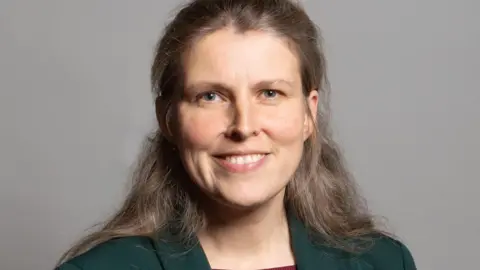 UK Parliament
UK ParliamentRachael Maskell, Labour MP for York Central, said she would vote against the bill and that her biggest concern was that “the safeguards just simply will not hold”.
“I have got huge sympathy for people who have experienced a difficult time at the end of their lives,” she said.
But improvements in access to palliative care and social care had to be addressed before the issue of assisted dying, she added.
Ms Maskell, who previously worked as a senior physiotherapist in the NHS, said: “I heard so many people say they felt they were a burden on their family or perhaps the cost of social care was so much that they would rather see the grandchildren hold the money.
“As a result they could talk themselves into an assisted death.”
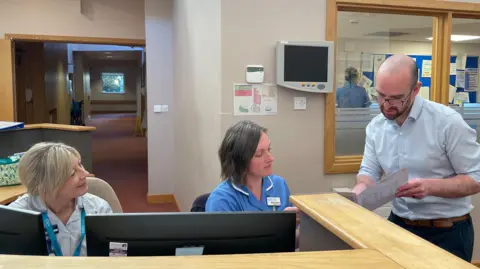 Mark Ansell/BBC
Mark Ansell/BBCDr Simeon Sender-Galloway, palliative care consultant at St Leonard’s Hospice, said staff respected the differing views of individual patients on the issue of assisted dying.
He said staff were pleased that the bill had “brought a focus onto the care that people with life-limiting conditions need”.
“When you are talking about assisted dying, you have to talk about palliative care, because even if it is legalised that will be for a very small proportion of people and it won’t be right for the rest of them,” he said.




